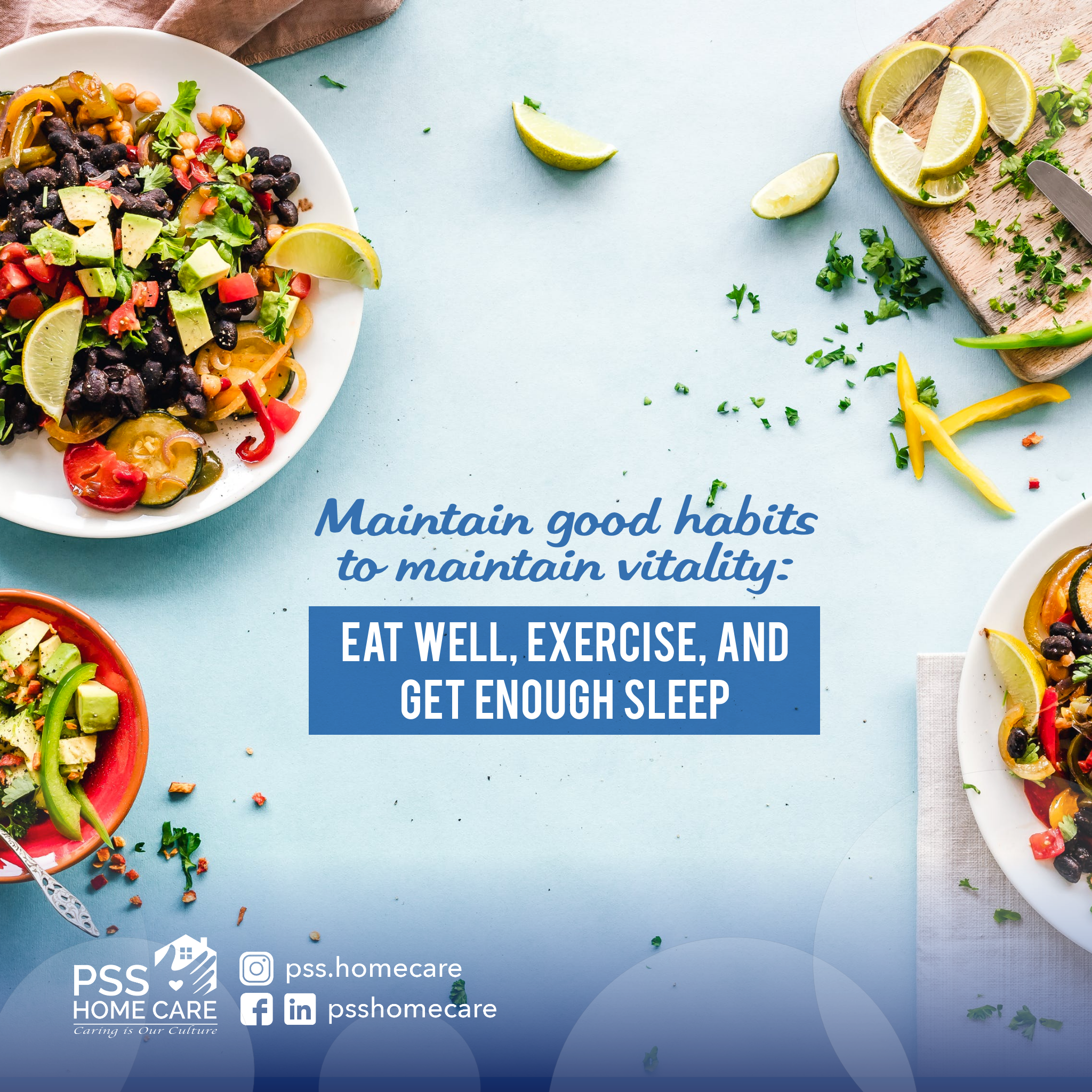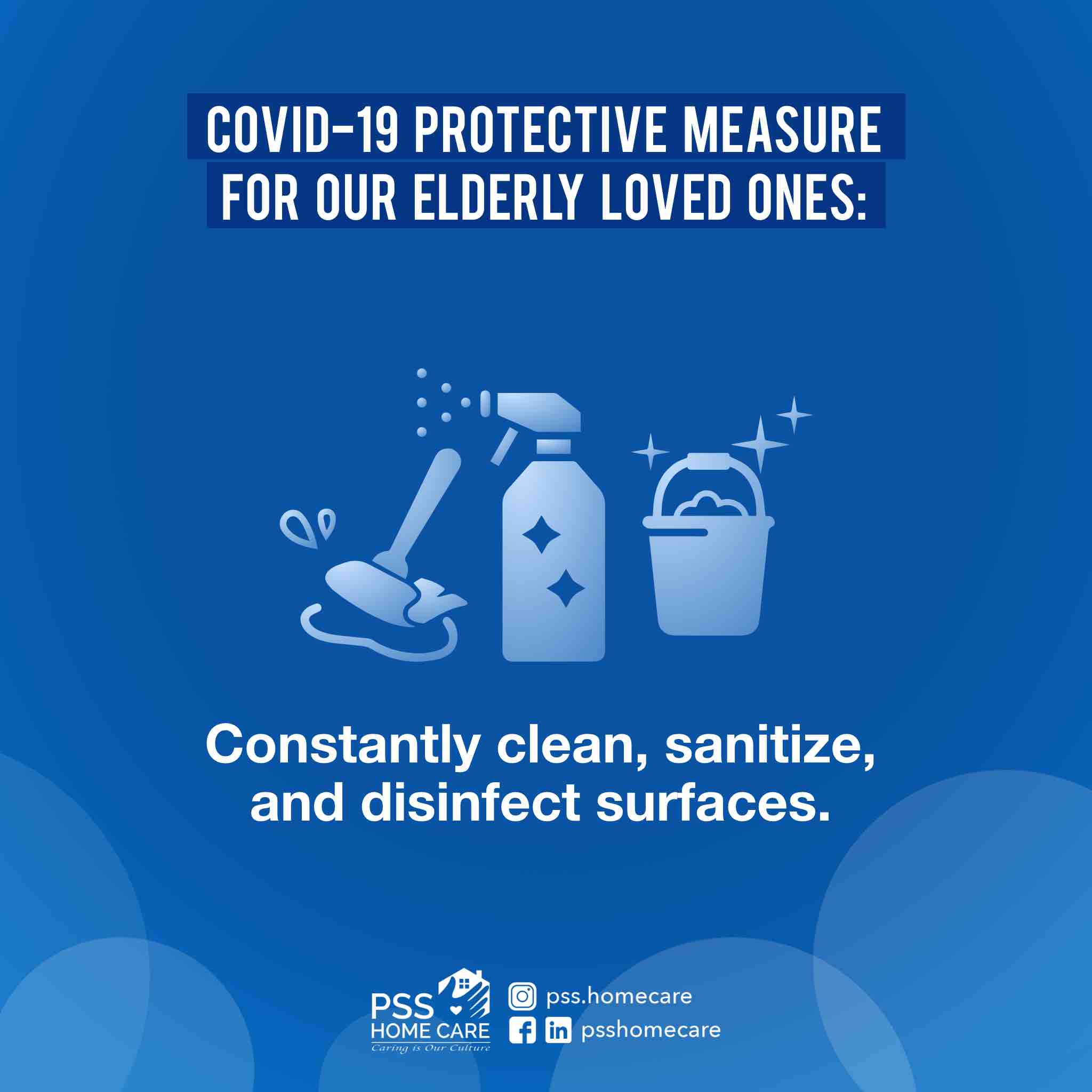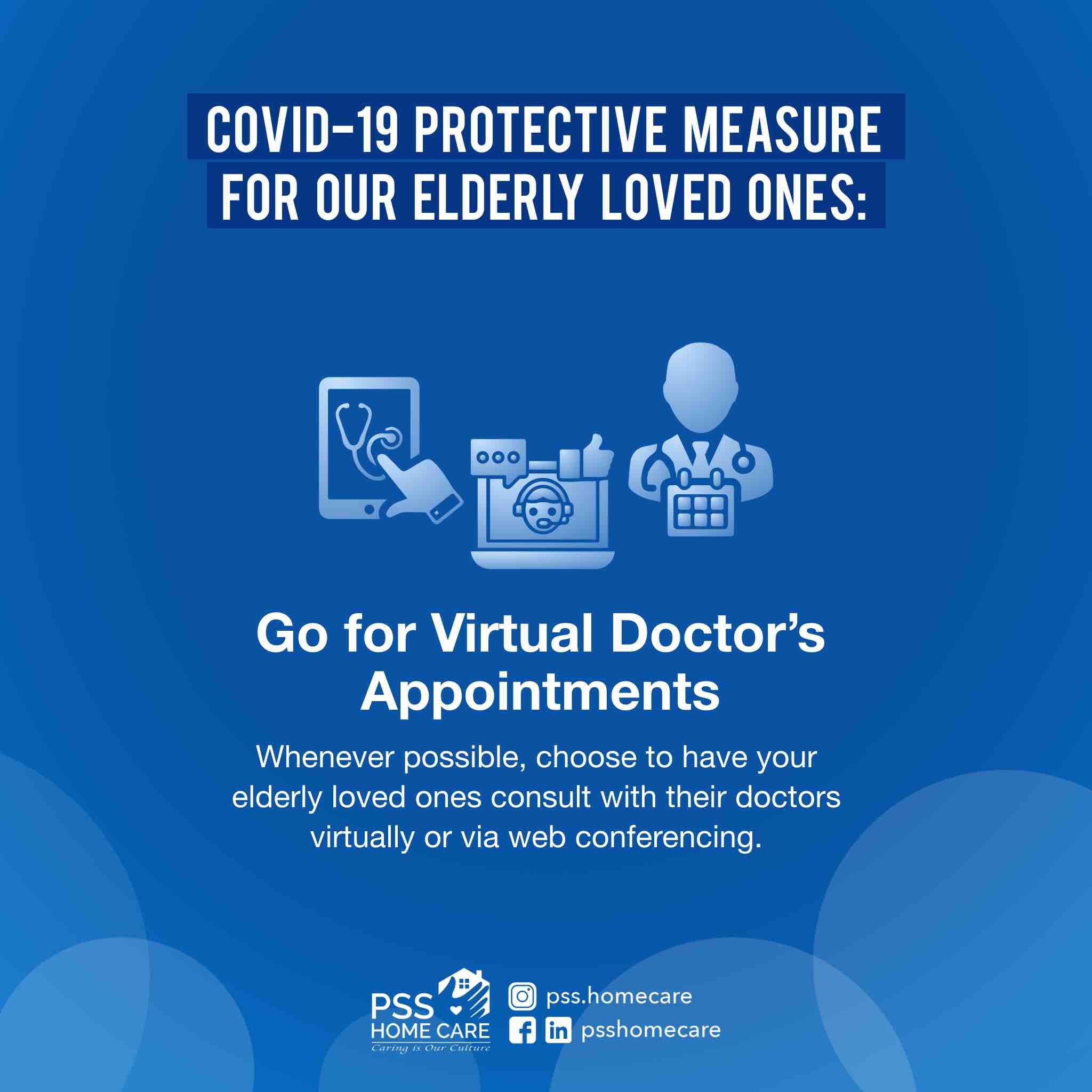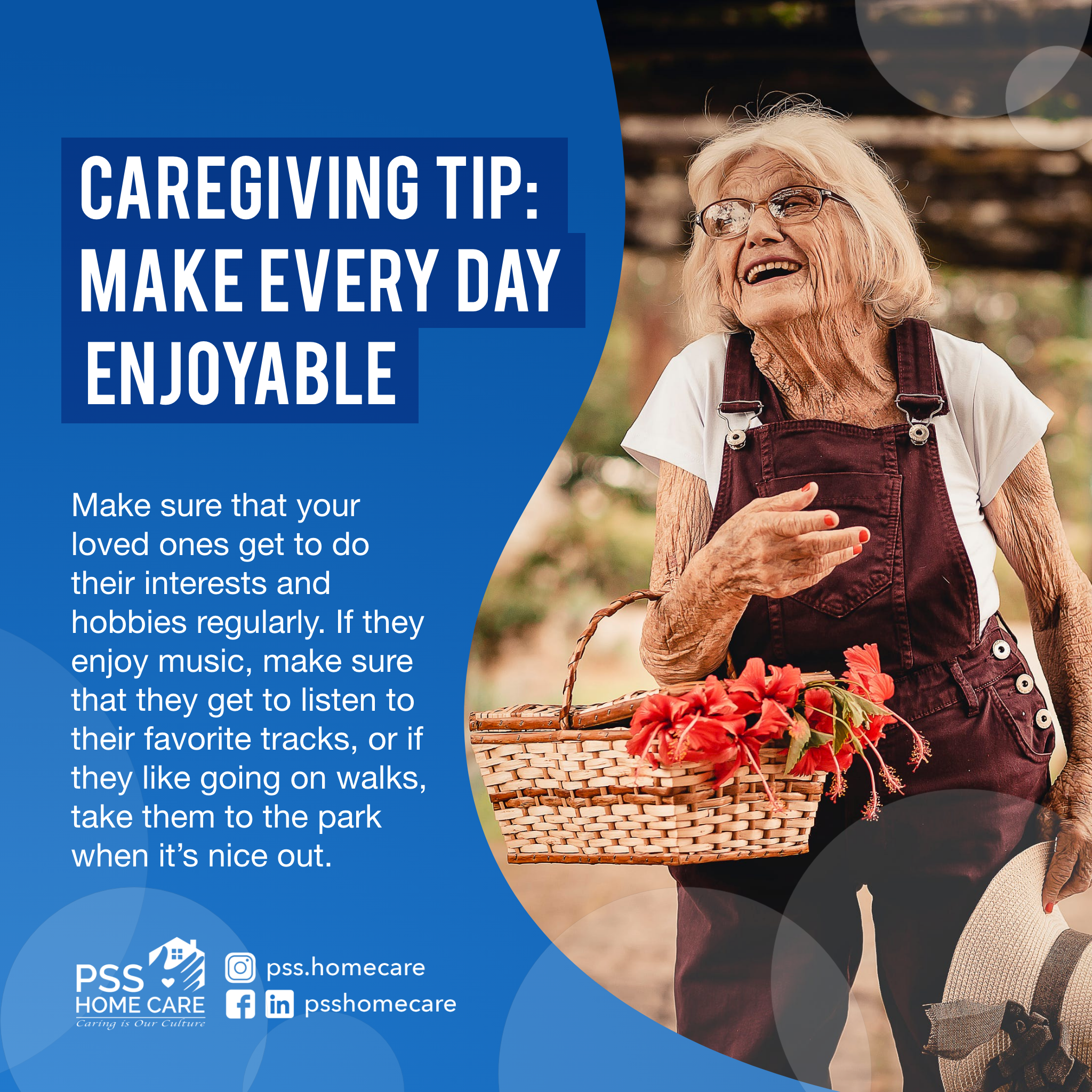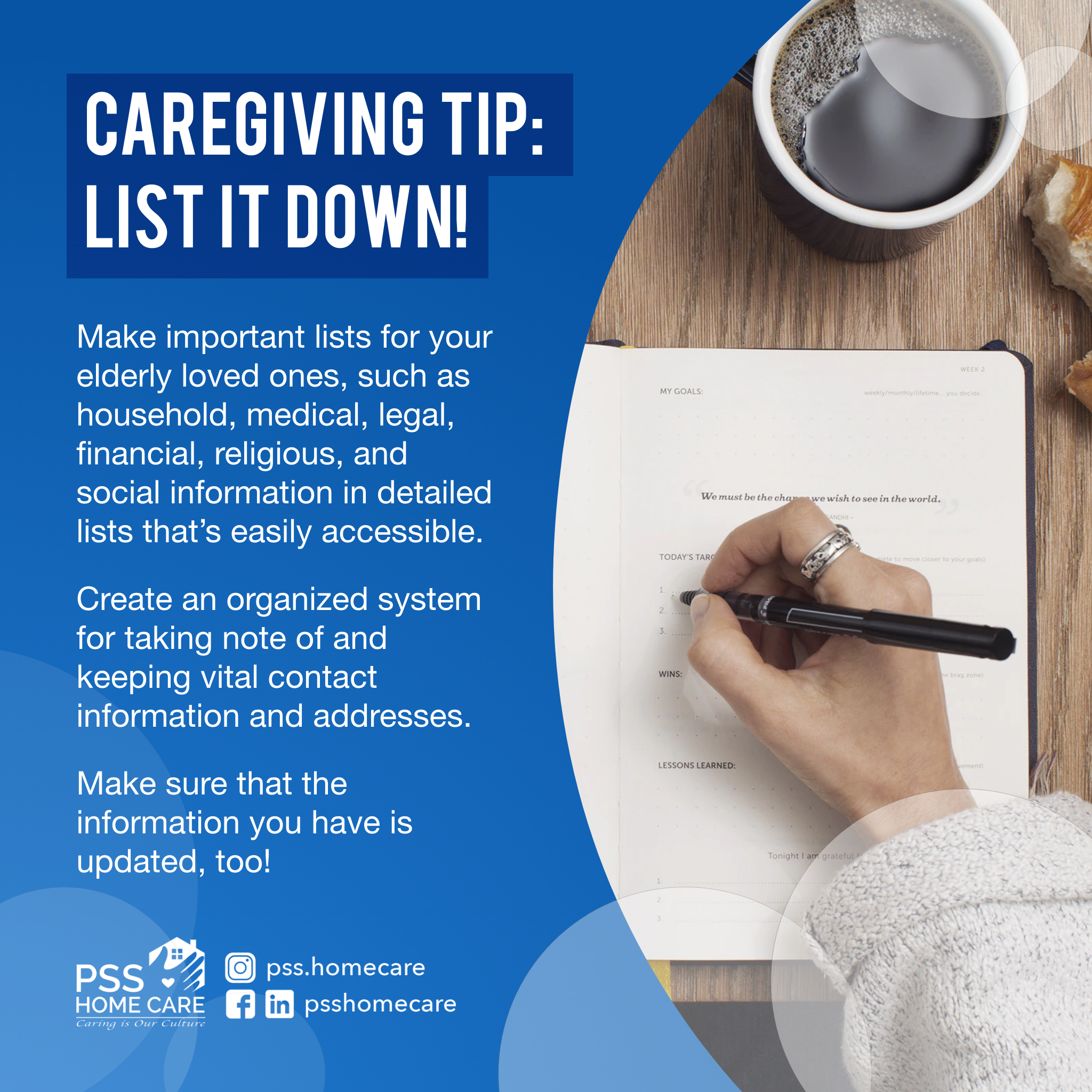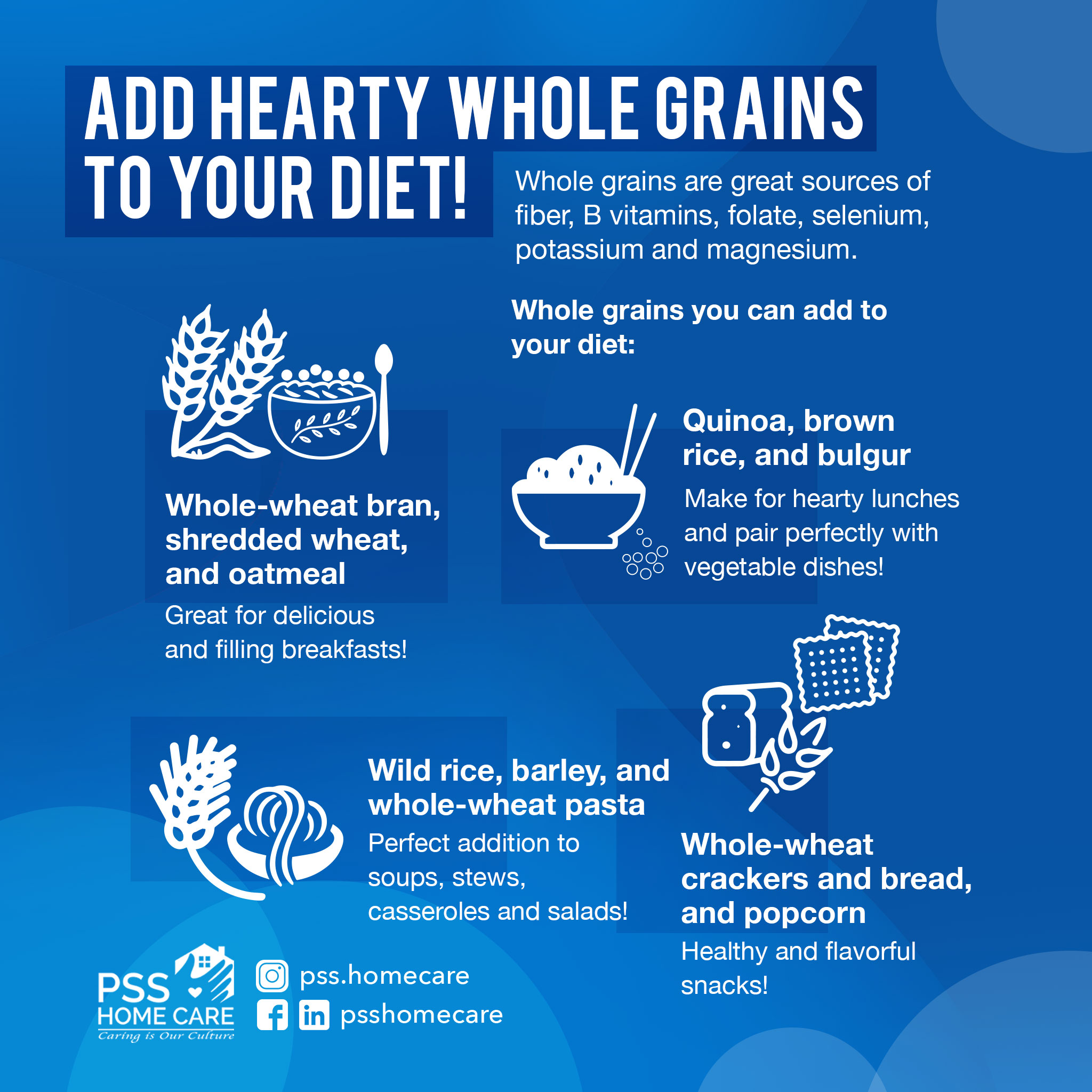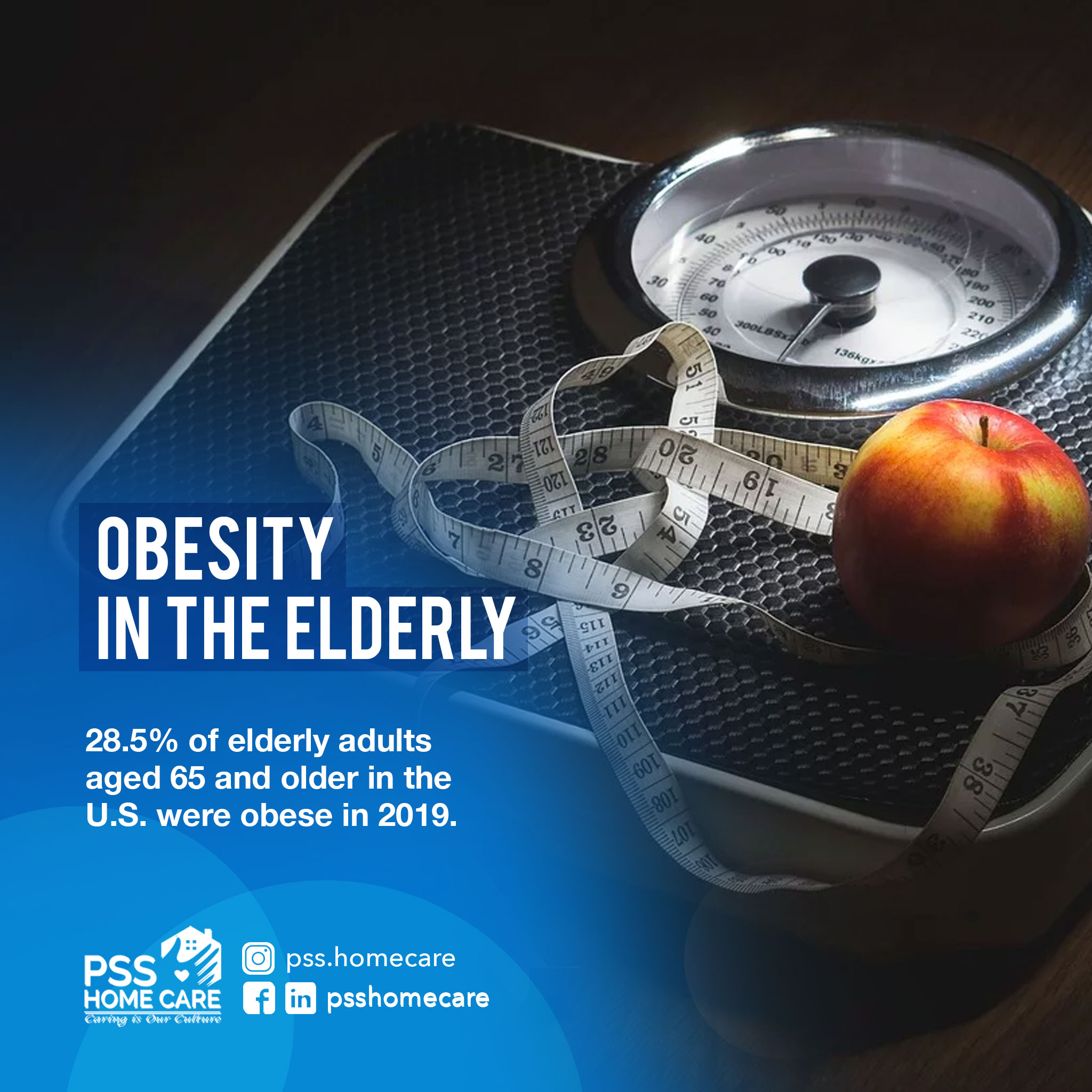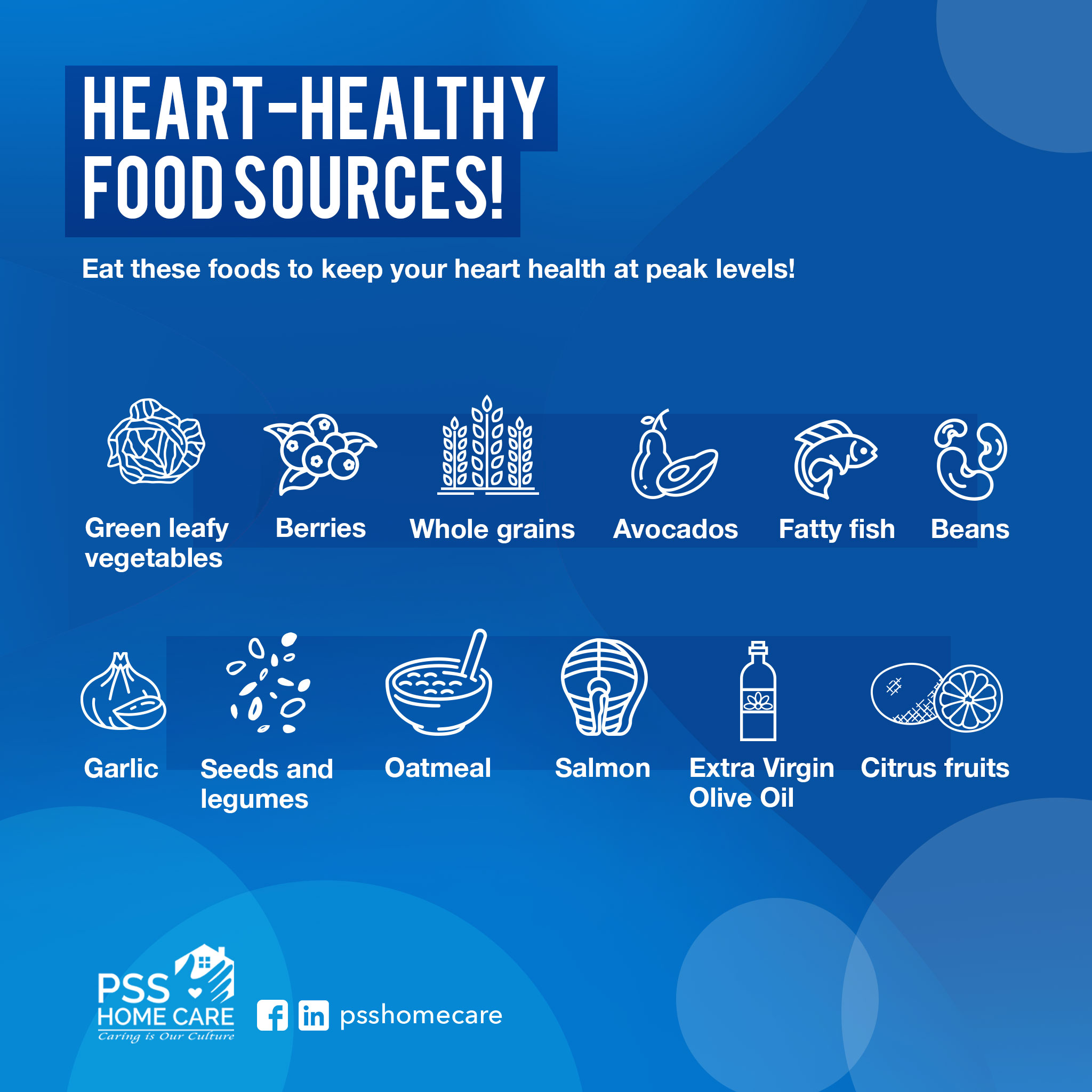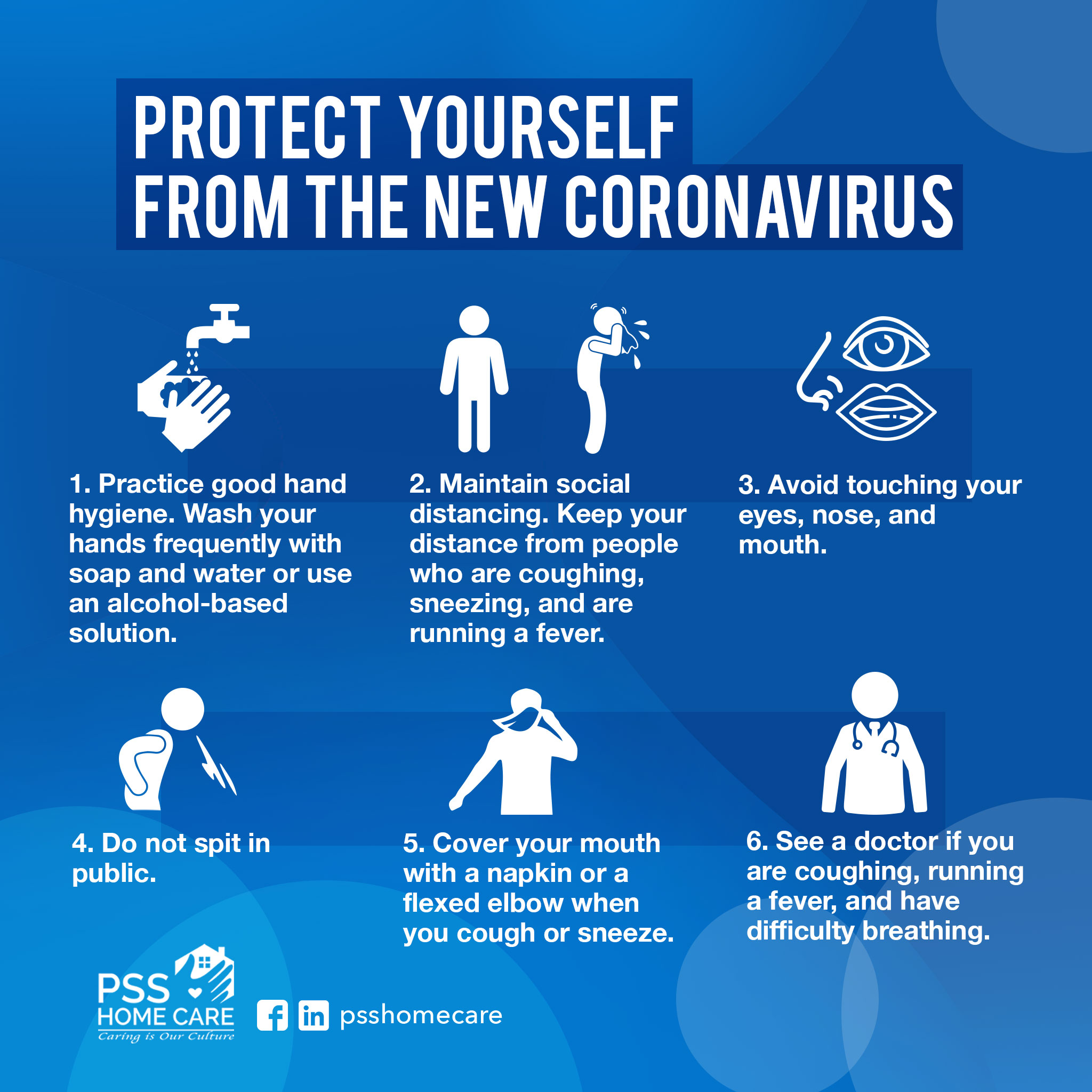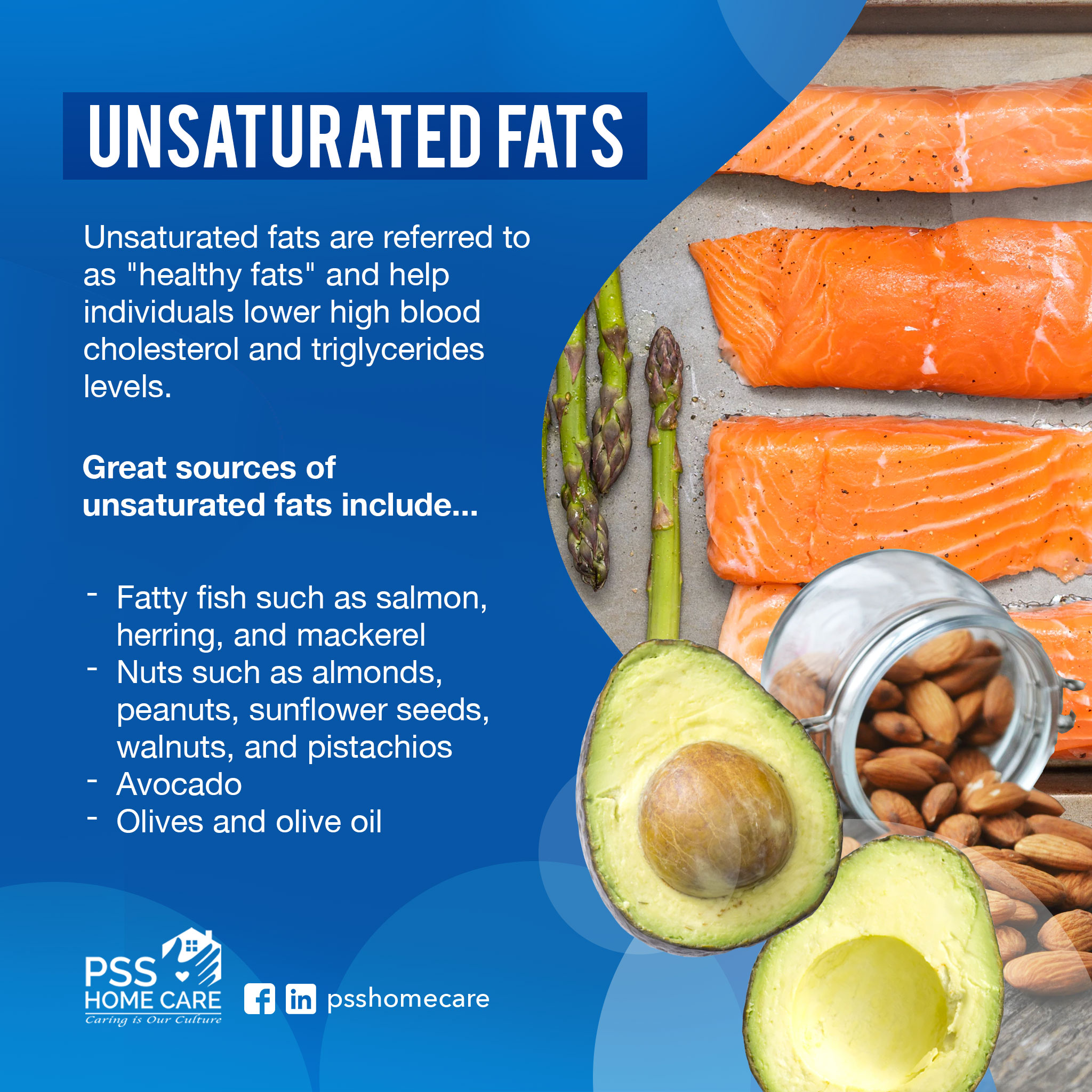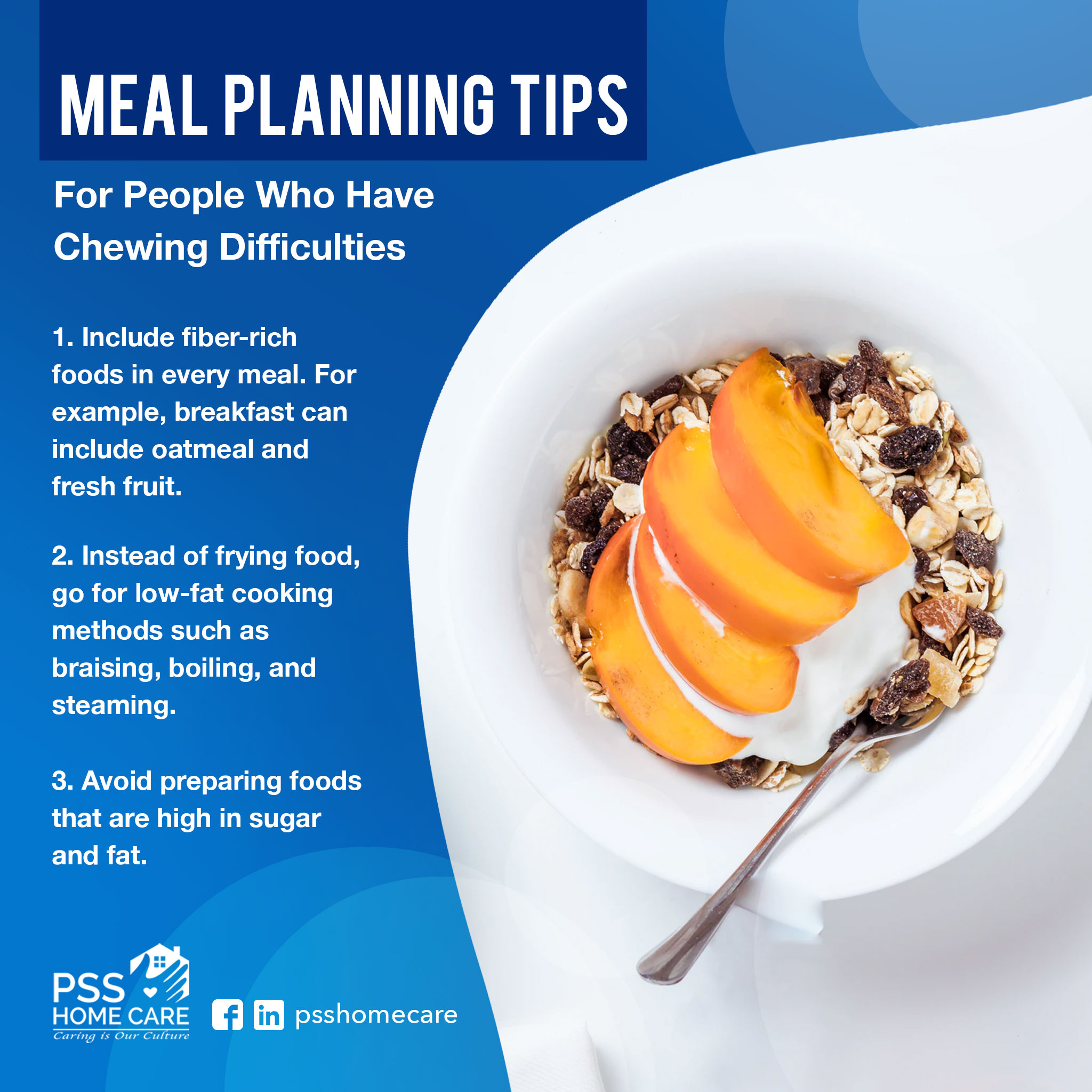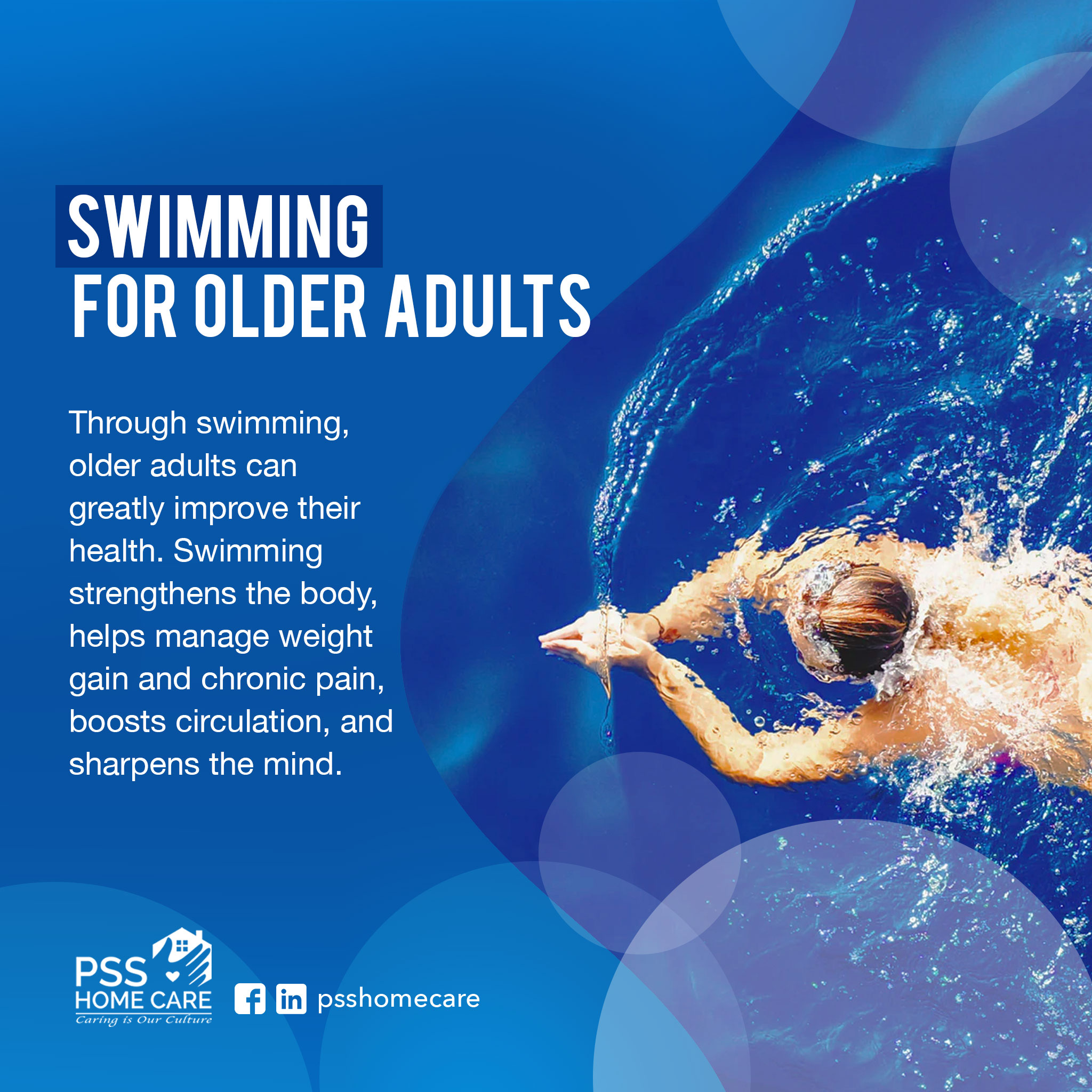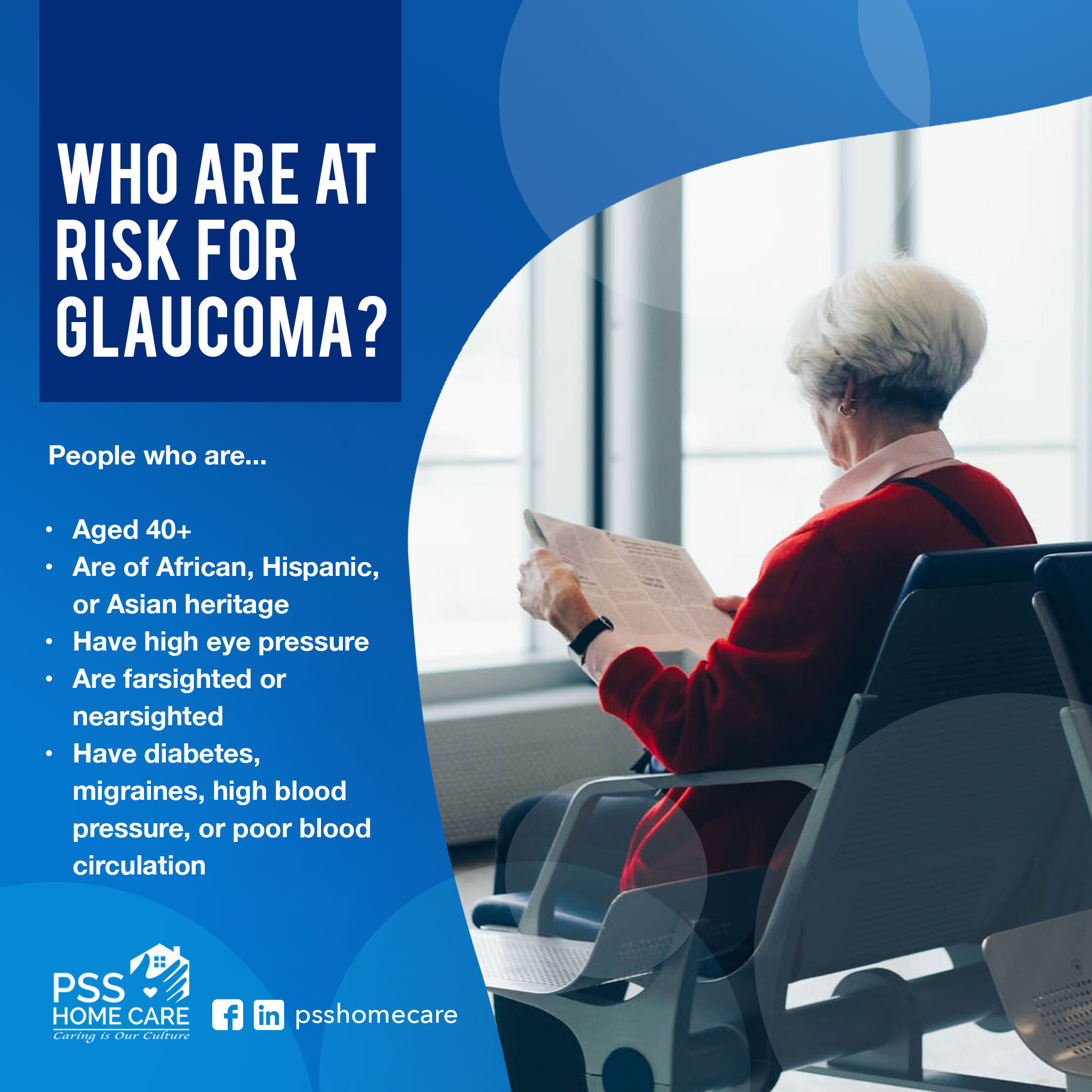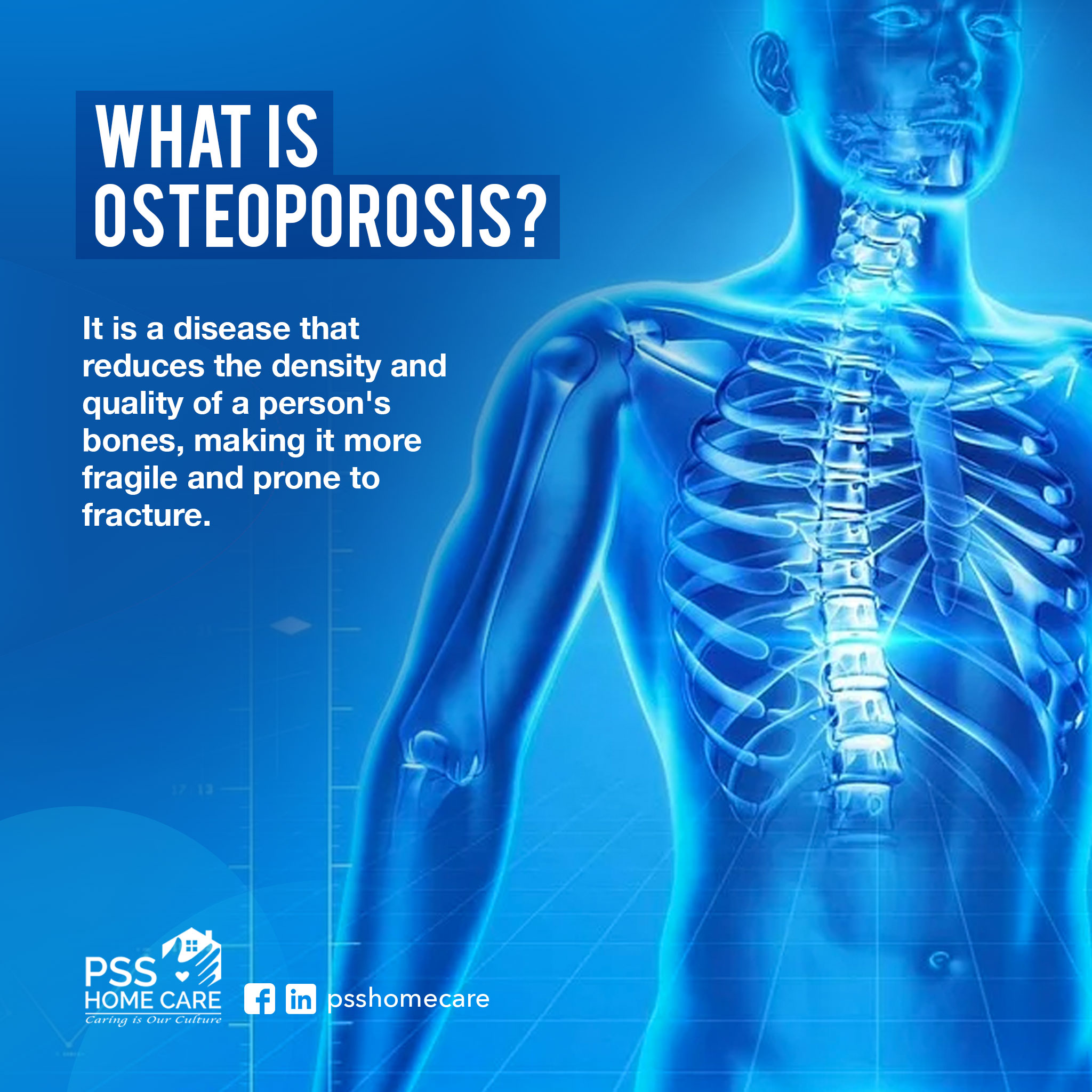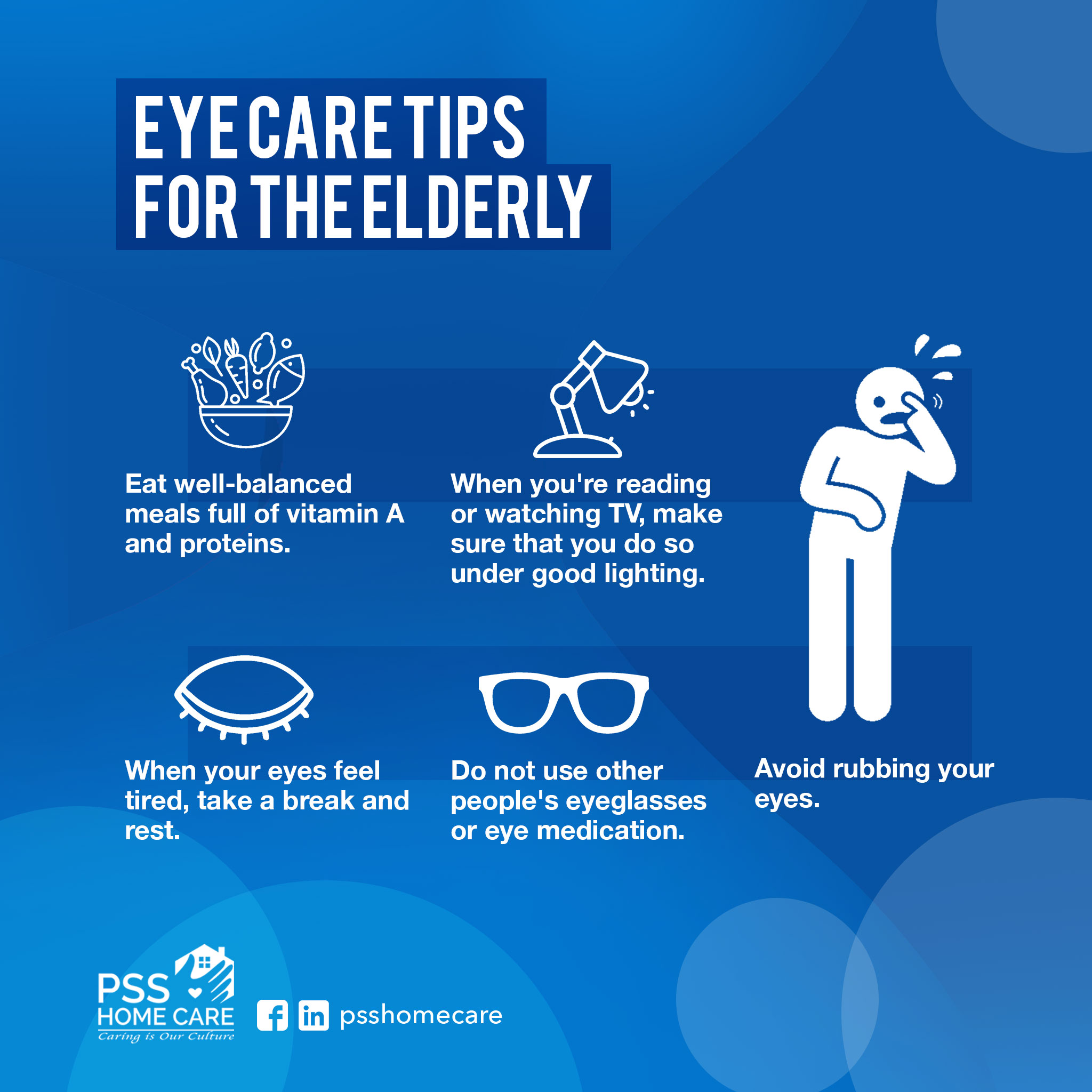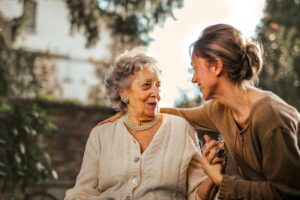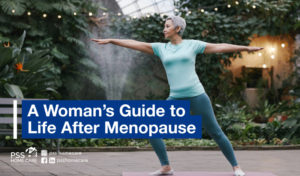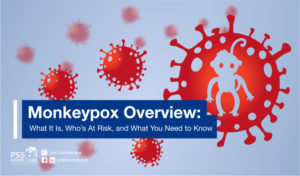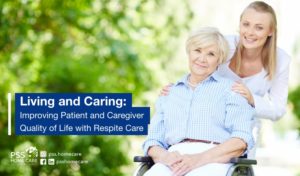Assisted Living Communities and In-Home Care: At the Crossroads of...
Read MoreWelcome to our
PSS Health Corner
Browse through our collection of health facts, tips, and trivia from our social media accounts.
- All
- Food
- Disease
- Tips
- Exercise
Maintain Good Habits To Maintain Vitality
Maintain good habits to maintain vitality:
Eat well, exercise, and sleep well.
While you stay home, it’s important to be as healthy and as active as possible. With the guidance of your physical therapist, perform home exercises, eat as much fruits and vegetables as possible, and make sure that you get enough sleep.
Constantly Clean, Sanitize And Disinfect surfaces
COVID-19 Preventive Measure for Our Elderly Loved Ones:
Constantly clean, sanitize, and disinfect surfaces.
Our employees are mandated to frequently clean and disinfect places and surfaces commonly touched by people, such as doorknobs, faucets, and toilet seats, among others.
Go For Virtual Doctor's Appointments
COVID-19 Protective Measure for Our Elderly Loved Ones:
Go for Virtual Doctor’s Appointments
Whenever possible, choose to have your elderly loved ones consult with their doctors virtually or via web conferencing. Check if your doctor or their respective hospitals offers video visits in lieu of in-person appointments.
Aside from following stringent hygiene, handwashing, and sanitation guidelines, our home health aides and caregivers are trained to assist our clients with their technology-related needs. With the permission of our clients, our care team members can assist in setting-up video calls on our client’s devices to ensure that our clients won’t miss their doctor’s appointments.
Caregiving Tip: Make Every Day Enjoyable
Caregiving Tip: Make Every Day Enjoyable
Make sure that your loved ones get to do their interests and hobbies regularly. If they enjoy music, make sure that they get to listen to their favorite tracks, or if they like going on walks, take them to the park when it’s nice out.
Caregiving Tip: List It Down
Caregiving Tip: List It Down!
Make important lists for your elderly loved ones, such as household, medical, legal, financial, religious, and social information in detailed lists that’s easily accessible. Create an organized system for taking note of and keeping vital contact information and addresses. Make sure that the information you have is updated, too!
Add Hearty Whole Grains to Your Diet!
Whole grains are great sources of fiber, B vitamins, folate, selenium, potassium and magnesium. Check out these great examples of whole grains that you can add to your diet! Don’t forget to talk to your doctor to find out which types of food are best to keep you healthy and strong!
Obesity In The Elderly
28.5% of elderly adults aged 65 and older in the U.S. were obese in 2019. Obesity predisposes to many diseases such as diabetes, hypertension, and certain types of cancer. It’s important that our elderly loved ones get proper nutrition and the right amount of exercise to keep them healthy.
Heart-healthy Food Sources!
Eat these foods to keep your heart health at peak levels!
– Green leafy vegetables
– Berries
– Whole grains
– Avocados
– Fatty fish
– Beans
– Garlic
– Seeds and legumes
– Oatmeal
– Salmon
– Extra Virgin Olive Oil
– Citrus fruits
Each person has unique needs! Talk to your doctor about the best types of food you should eat to keep your heart healthy and strong!
Protect Yourself From The New Coronavirus
1. Practice good hand hygiene. Wash your hands frequently with soap and water or use an alcohol-based solution.
2. Maintain social distancing. Keep your distance from people who are coughing, sneezing, and are running a fever.
3. Avoid touching your eyes, nose, and mouth.
4. Do not spit in public.
5. Cover your mouth with a napkin or a flexed elbow when you cough or sneeze.
6. See a doctor if you are coughing, running a fever, and have difficulty breathing.
Keep safe, everyone!
Unsaturated Fats
Unsaturated fats are referred to as “healthy fats” and help individuals lower high blood cholesterol and triglycerides levels.
Great sources of unsaturated fats include…
– Fatty fish such as salmon, herring, and mackerel
– Nuts such as almonds, peanuts, sunflower seeds, walnuts, and pistachios
– Avocado
– Olives and olive oil
Meal Planning Tips
Here are some helpful meal planning tips for people who have chewing difficulties:
1. Include fiber-rich foods in every meal. For example, breakfast can include oatmeal and fresh fruit.
2. Instead of frying food, go for low-fat cooking methods such as braising, boiling, and steaming.
3. Avoid preparing foods that are high in sugar and fat.
Don’t forget to consult with your doctor to learn more about your dietary requirements that best fit your long-term health goals.
Check out our other articles
A Woman’s Guide to Life After Menopause
A Woman’s Guide to Life After Menopause Menopause, which occurs...
Read MoreMonkeypox Overview: What It Is, Who’s At Risk, and What You Need to Know
Monkeypox Overview:What It Is, Who’s At Risk, and What You...
Read MoreLiving and Caring: Improving Patient and Caregiver Quality of Life with Respite Care
Living and Caring: Improving Patient and Caregiver Quality of Life...
Read More
